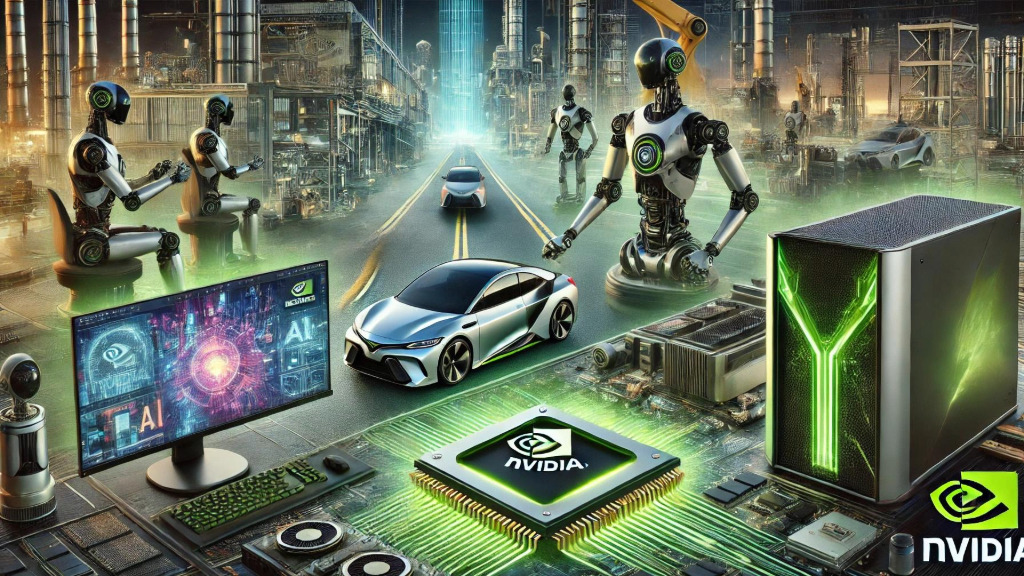Nvidia: the new king of the stock market once again dethrones Apple

Nvidia has regained the top spot in the stock market, surpassing Apple with a capitalization of $3.40 billion after a 2.26% rise in its shares at the start of the day on Wall Street.
This promotion reinforces Nvidia's role as a leader in advanced technology, especially in microprocessors and graphics cards, key areas for the development of artificial intelligence, data processing and other high-demand innovations in the digital economy.
This exponential growth, with a year-to-date appreciation of more than 180%, shows a strong trend towards technology sectors that are transforming global dynamics, where more and more companies and countries are seeking new capabilities in artificial intelligence and advanced computing.
Nvidia has become central to these industries, especially having been added to the Dow Jones Industrials Index, replacing Intel and consolidating its place among the most influential U.S. companies alongside Apple, Microsoft and Amazon.
For the Mexican market, the strengthening of Nvidia can be seen as both an opportunity and a threat, given the growing reliance on advanced technology in multiple sectors. Nvidia's inclusion in the DJIA indicates its recognition as one of the most relevant companies, highlighting the importance of keeping pace in technological innovation for emerging economies.
Mexico, which is seeking to position itself as a strategic center for advanced manufacturing and artificial intelligence in Latin America, could benefit greatly from capitalizing on the influence of companies like Nvidia through strategic alliances and technology collaborations.
As the nearshoring gains relevance and the country becomes an attractive destination for high-tech manufacturing, the ability to access Nvidia's developments could strengthen Mexico's competitiveness in the global market.
However, technological acceleration also represents a weakness if the Mexican market fails to adapt to these innovation demands. The country's technological infrastructure still faces significant challenges in terms of talent preparation, access to resources and connectivity, factors that are essential for success in sectors that require efficient data management and high processing capacity.
The lack of sufficient investment in these areas can limit the opportunities for collaboration and hinder the progress of the national industry in the face of the competitiveness of more developed markets. Nvidia, by positioning itself as a provider of solutions for artificial intelligence, highlights the technological gap that exists in Mexico, and underscores the urgent need to raise the levels of digitization in various industries.
Without decisive action to strengthen its digital ecosystem and attract investment in infrastructure, Mexico could be left behind in the competition for talent and cutting-edge technology.
In addition to opportunities and weaknesses, Nvidia's growth poses certain threats in the global market, which may impact Mexico indirectly. Trade tensions and increasing competition between the United States and other countries in the domain of advanced technology make the market for semiconductors and artificial intelligence increasingly contested. This could result in increased pressure for countries like Mexico to adjust their trade and investment policies to facilitate integration into high-tech supply chains and avoid the risk of being left out in a challenging geopolitical context.
The strategic alliances that Nvidia and other large technology companies could prioritize with other countries force Mexico to give more serious consideration to strengthening its regulation, infrastructure and incentive policies to create a competitive environment. Competition and demand for advanced technologies not only transform the global stock market, but also redefine the strategic sectors of countries seeking to remain at the forefront of technology.
In conclusion, Nvidia's rise in the stock market and its growing global influence represent both an inspiration and a wake-up call for the Mexican market. As Nvidia and its peers lead the advancement in artificial intelligence and advanced computing, Mexico must identify and act on its strengths and weaknesses in infrastructure, talent and policy to leverage this transformation as a catalyst for growth. Through alliances with leading companies and a strategic vision toward the nearshoringThe country could position itself competitively in the global technological environment, overcoming the challenges of digital adaptation and integrating into the new market dynamics.
Collaboration: Editorial Auge.





